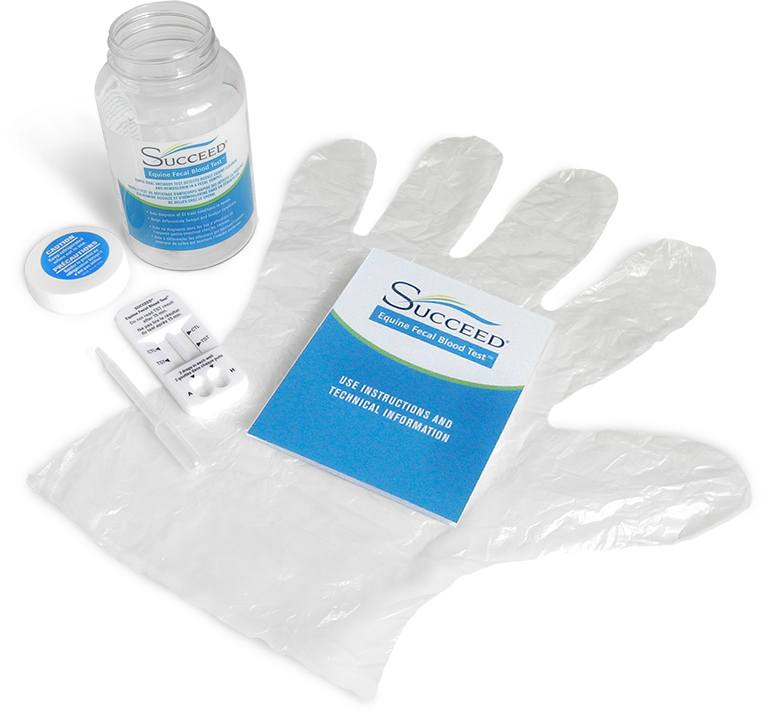For performance horses across disciplines, digestive conditions like ulcers are all too common – not just in the stomach, but in the hindgut as well. But even seemingly healthy horses may suffer from underlying GI tract conditions.

- colic
- ulcers
- energy and stamina
- weight and condition
- or underperformance
You should have your vet test your horse.
What’s Really Wrong with Your Horse?
Feeding large amounts of grain and restricting turnout, along with the stress of training and competition, means GI health issues are almost guaranteed. And when the horse’s gut isn’t optimal, everything is affected – stride length, suppleness, mechanics, stamina, even attitude.
When you consider the subtle differences that propel one horse to first place over another in tough competition, then a healthy GI tract can mean the difference between finishing first or going home empty handed.
Test Early and Often with the FBT
For some horses, lack of focus in training or underperforming may be the only signs they show of digestive distress. For others, behavior and performance signals allow you to catch problems before they develop into more serious clinical issues.
Have your veterinarian test your horses with the FBT to help:
- Regularly monitor wellness
- Detect and diagnose issues earlier
- Monitor recovery after GI tract surgery or other treatments and procedures
Ask your veterinarian to have your entire string tested regularly with the SUCCEED Equine Fecal Blood Test. It takes about 15 minutes to test each horse, right in the barn.

Learn More About the SUCCEED FBT
- U.S. FBT Website
- Talk to Your Vet

